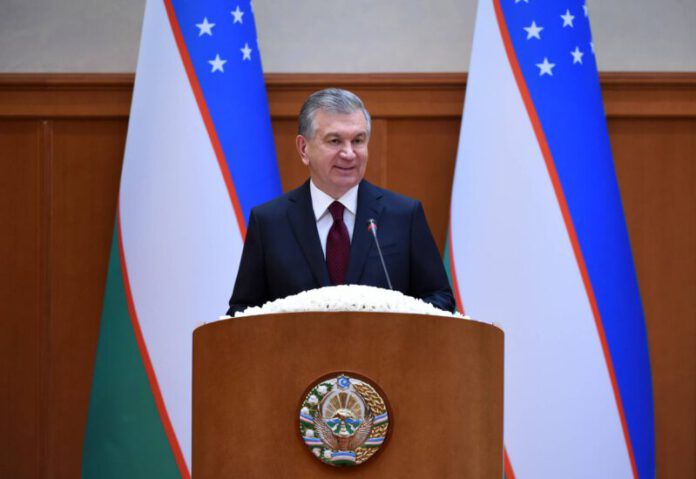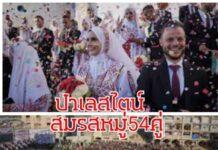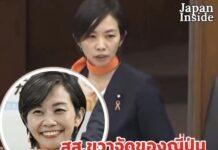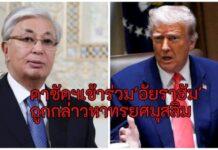นับตั้งแต่การเลือกตั้งของนาย Shavkat Mirziyoyev สู่ตำแหน่งประธานาธิบดีของอุซเบกิสถาน เมื่อปี พ.ศ. 2559 ประเทศอุซเบกิสถานไม่เพียงแต่ได้เห็นถึงยุคของการพัฒนาอย่างทั่วถึงอย่างที่ไม่เคยปรากฏมาก่อน แต่ยังได้เสริมสร้างความแข็งแกร่งในเวทีระหว่างประเทศซึ่งกลายเป็นประเทศที่เป็นผู้นำในเอเชียกลาง ฯพณฯ นาย Shavkat Mirziyoyev ได้รับการประกาศให้เป็นนักสู้เพื่อการปฏิรูปในอุซเบกิสถาน
ในอุซเบกิสถาน มีการปฏิรูปขนาดใหญ่ทั้งหมดดำเนินการภายใต้กรอบของยุทธศาสตร์การดำเนินการแห่งชาติว่าด้วยพื้นที่การพัฒนาที่มีความสำคัญ 5 ประการในช่วงปี พ.ศ. 2560-2564 มีการให้ความสนใจเป็นพิเศษในการสร้างหลักประกันผลประโยชน์และเสรีภาพของมนุษย์ เสริมสร้างคุณค่าของชาติและศาสนาให้แข็งแกร่งยิ่งขึ้น
โดยในช่วงเวลาใหม่ของการพัฒนาใหม่ของอุซเบกิสถาน มีการดำเนินการมากมายในประเทศในด้านเสรีภาพในการนับถือศาสนาและความเชื่อ ความจริงที่ว่าการทำงานเพื่อเสริมสร้างความสัมพันธ์ของมิตรภาพระหว่างกว่า 130 ประเทศและและประชาชนที่อาศัยอยู่ในประเทศ การจัดตั้งหลักการความเปิดกว้างทางศาสนาเป็นที่ยอมรับอย่างสูงจากประชาคมระหว่างประเทศเป็นพยานถึงความถูกต้องของนโยบายที่ดำเนินการในทิศทางนี้
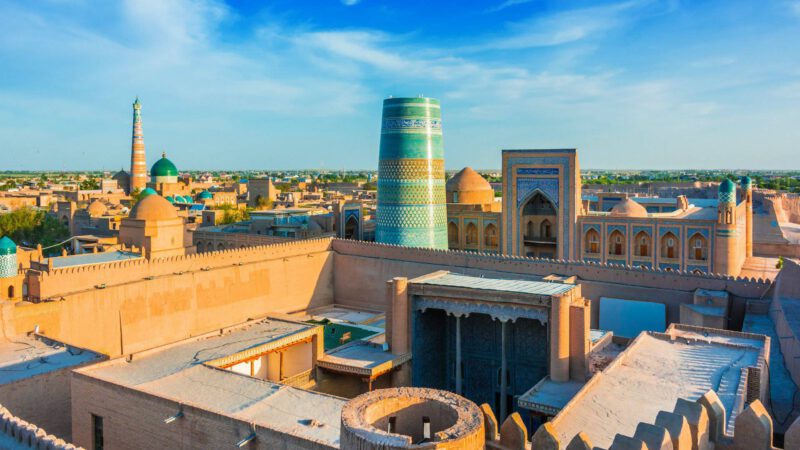
ซึ่งเหตุการณ์สำคัญคือการยอมรับเมื่อวันที่ 12 ธันวาคม พ.ศ. 2561 โดยสมัชชาใหญ่แห่งสหประชาชาติตามมติ “การตรัสรู้และความเปิดกว้างทางศาสนา” ซึ่งริเริ่มโดย ฯพณฯ นาย Shavkat Mirziyoyev ประธานาธิบดีแห่งสาธารณรัฐอุซเบกิสถาน ในการประชุมสมัชชาใหญ่แห่งสหประชาชาติครั้งที่ 72 เมื่อเดือนกันยายน พ.ศ. 2560 ซึ่งเป็นเรื่องที่น่าสนใจว่า มตินี้ไม่เพียงแต่ได้รับการสนับสนุนจากสมาชิกประเทศในองค์การสหประชาชาติอย่างท่วมท้น แต่ได้นำมาใช้ร่วมกับประเทศอื่น ๆ มากกว่า 50 ประเทศ รวมถึงประเทศไทย
นอกจากนี้ ในการเสนอความคิดริเริ่มใหม่ ๆ ในด้านสิทธิมนุษยชนอย่างต่อเนื่อง ในระหว่างการกล่าวสุนทรพจน์ในการประชุมสภาสิทธิมนุษยชนแห่งสหประชาชาติสมัยที่ 46 ประธานาธิบดีอุซเบกิสถานกล่าวว่า การประกันสิทธิมนุษยชนและเสรีภาพขั้นพื้นฐานจะยังคงมีบทบาทสำคัญในการปฏิรูปอุซเบกิสถาน
สืบเนื่องมาจากการทำงานดังกล่าว เมื่อวันที่ 5 กรกฎาคม พ.ศ. 2564 ฯพณฯ นาย Shavkat Mirziyoyev ประธานาธิปดีสาธารณรัฐอุซเบกิสถาน ได้ลงนามในกฎหมายฉบับใหม่ ว่าด้วยเรื่อง “ เสรีภาพและองค์กรทางศาสนา” ซึ่งเป็นรากฐานของความคิดริเริ่มในการเปลี่ยนแปลงด้านศาสนาและการตรัสรู้ ขอบเขตสิทธิและหน้าที่ขององค์กรทางศาสนา กิจกรรมทางศาสนาถูกเสริมสร้างให้มีความแข็งแกร่งมากยิ่งขึ้น
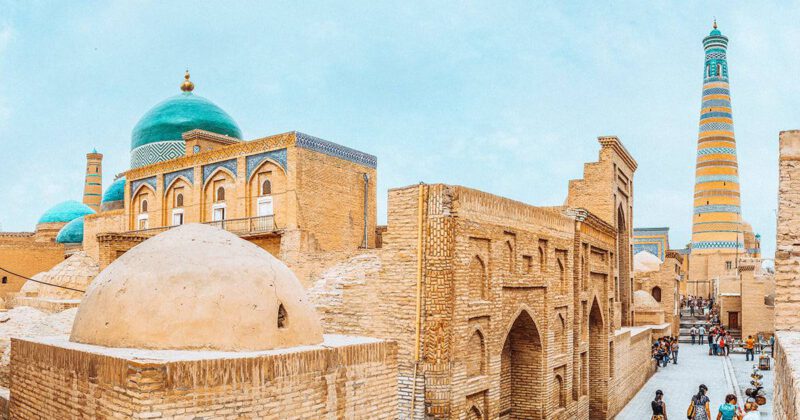
กฎหมายใหม่ได้มีการยกเลิกสิ่งต่อไปนี้
– ข้อจำกัดในการห้ามพลเมืองใส่ชุดสวดมนต์ในพื้นที่สาธารณะ
– ข้อกำหนดของผู้ศึกษาในสถาบันเกี่ยวกับศาสนาเพื่อได้รับการยอมรับพิเศษ
– ขั้นตอนการยื่นเอกสารรับรองการจดทะเบียนทางศาสนา
– ข้อกำหนดในการได้รับความยินยอมจากชาว Mahalla ในการสร้างองค์กรทางศาสนา
✅กฎหมายใหม่ได้ทำให้ขั้นตอนการจดทะเบียนองค์กรทางศาสนานั้นง่ายยิ่งขึ้น:
👉 จำนวนของผู้ริเริ่มจัดตั้งองค์กรทางศาสนานั้นลดลงจาก100 เป็น 50 คน
👉 สิทธิในการยื่นต่อหน่วยงานของกระทรวงยุติธรรมภายในระยะเวลา 6 เดือน (ในทางปฏิบัติ 3 เดือน) หลังจากมีการประชุมเพื่อจัดตั้งองค์กรทางศาสนาให้แข็งแกร่งยิ่งขึ้น
👉 จำนวนเอกสารที่ส่งมาลดลง
👉 บริการการลงทะเบียนจะได้รับการให้ข้อมูลในรูปแบบอิเล็กทรอนิกส์อย่างเต็มรูปแบบ
👉 การพิจารณาเอกสารภายในระยะเวลา 1 เดือนสำหรับยื่นจดทะเบียนองค์กรทางศาสนา ซึ่งเดิม
ต้องใช้ระยะเวลา 3 เดือน
👉 หากไม่รับขึ้นทะเบียนจะมีการแจ้งเหตุผลอย่างชัดเจน
📌 ศาลสั่งระงับกิจกรรมขององค์กรทางศาสนาได้เท่านั้น เมื่อทำการยื่นคำร้องต่อศาลให้ดำเนินการโดยเจ้าหน้าที่ที่ละเมิดผลประโยชน์ที่ชอบด้วยกฎหมายขององค์กรทางศาสนา จะได้รับการยกเว้นไม่ต้องเสียภาษีของรัฐและหลักประกันอื่น ๆ เพิ่มเติม
ตามบรรทัดฐานและข้อกำหนดระหว่างประเทศที่เกี่ยวข้อง ประการแรก ปฏิญญาสากลว่าด้วยสิทธิมนุษยชน กติการะหว่างประเทศว่าด้วยสิทธิ พลเมืองและสิทธิทางการเมือง และการตีความทั่วไปของคณะกรรมการสิทธิมนุษยชนแห่งสหประชาชาติที่ได้รับการศึกษามาอย่างรอบคอบ และคำนึงถึงกฎและหลักการพื้นฐานในการร่างกฎหมาย
รวมถึงการคำนึงถึงประเพณี ขนบธรรมเนียม และค่านิยมของประเทศที่ก่อตัวขึ้นในอดีต โดยตัวกฎหมายดังกล่าวสะท้อนให้เห็นถึงคำแนะนำของผู้เชี่ยวชาญจากองค์กรระหว่างประเทศที่มีอำนาจ เช่น องค์กรระหว่างประเทศที่เป็นพันธมิตร คณะกรรมาธิการเวนิสแห่งสภายุโรป สำนักงาน OSCE สำหรับสถาบันประชาธิปไตยและสิทธิมนุษยชน
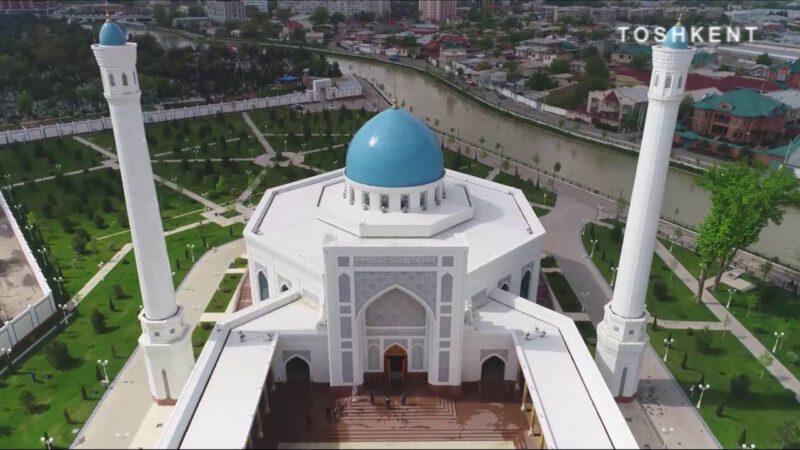
ในความเป็นจริงแล้ว ศาสนาอิสลามได้สอนให้เราปฏิบัติต่อสมาชิกของศาสนาอื่นด้วยความเคารพตั้งแต่เริ่มแรก ศาสนาอิสลามไม่ได้สอนให้เคารพในความเชื่อในสวรรค์ของศาสนาที่มีมาก่อน แต่สอนให้แสดงความเมตตาอย่างไม่มีขอบเขตต่อผู้ติดตามของศาสนาเหล่านั้น สิทธิของพวกเขาเป็นที่ประดิษฐานอยู่ในกฎหมาย ชาวซิมมาซึ่งอาศัยอยู่ท่ามกลางชาวมุสลิมที่ดำเนินชีวิตตามกฎเหล่านี้มานานหลายศตวรรษ เป็นแบบอย่างของมนุษยชาติทั้งหมดด้วยการแสดงความเมตตา
ในสังคมที่หลักความเปิดกว้างทางศาสนาได้รับการนำมาปฏิบัติใช้ในชีวิต อีกทั้งการเคารพซึ่งกันและกันและความจริงใจจะมั่นคง และทุกคนจะอยู่ร่วมกันอย่างสงบสุข
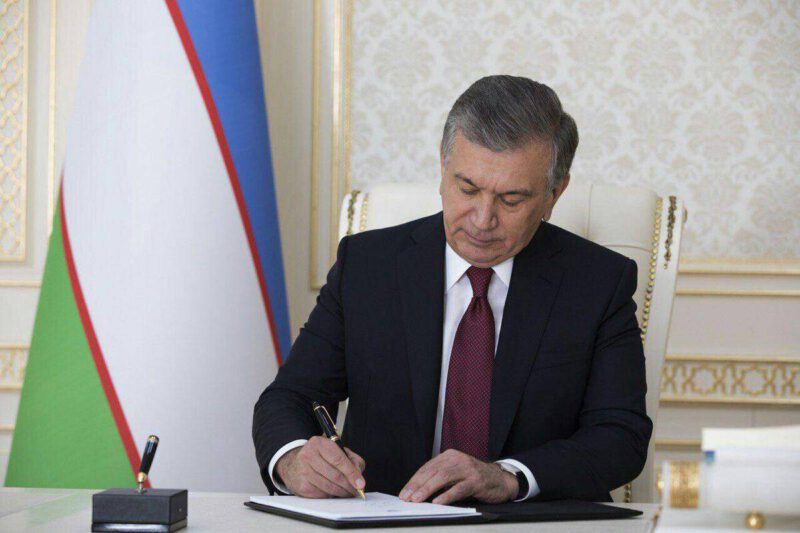
ทุกวันนี้ การแข่งขันทางภูมิรัฐศาสตร์กำลังทวีความรุนแรงขึ้นในโลก และกองกำลังบางส่วนกำลังพยายามยั่วยุให้เกิดความขัดแย้งและความบาดหมางกันระหว่างศาสนาต่าง ๆ เพื่อลดอำนาจของบางประเทศ และเข้าควบคุมภูมิภาคทั้งในด้านสังคม การเมือง และเศรษฐกิจ
ศาสนาอิสลามเรียกร้องให้ทุกศาสนาร่วมมือกันในการสร้างความยุติธรรม รับรองความปลอดภัยและป้องกันการนองเลือดของผู้บริสุทธิ์
โดยสรุป กฎหมายใหม่นี้ในอุซเบกิสถาน “ว่าด้วยเสรีภาพทางมโนธรรมและองค์กรทางศาสนา” มีความสำคัญสำหรับประเทศอื่น ๆ เนื่องจากเป็นการประกันมาตรฐานสิทธิมนุษยชนระหว่างประเทศ สิทธิและเสรีภาพที่เป็นที่ยอมรับในระดับสากลในด้านศาสนา ซึ่งนับว่าเป็นลักษณะเฉพาะของสถานการณ์ทางศาสนาในปัจจุบันของประเทศอุซเบกิสถานและสภาพทางประวัติศาสตร์ของความสัมพันธ์ระหว่างศาสนา
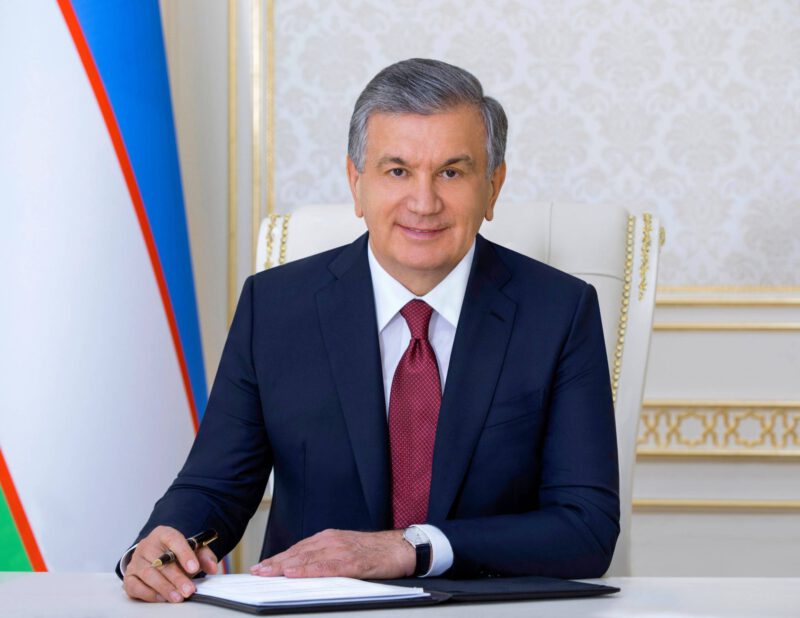
Noble initiatives in the field of religion and enlightenment in Uzbekistan are a solid foundation of great reforms
Since the election of Shavkat Mirziyoyev to the presidency of Uzbekistan in 2016, the country has not only witnessed an unprecedented era of comprehensive development, but has also strengthened its position in the international arena, becoming a leading power in Central Asia. Shavkat Mirziyoyev was proclaimed a fighter for reforms in Uzbekistan.
In Uzbekistan, all large-scale reforms are carried out within the framework of the National Action Strategy on Five Priority Development Areas in 2017-2021. Particular attention is paid to ensuring human interests and freedoms, further strengthening national and religious values.
In the new period of new development of Uzbekistan, much has been done in the country in the field of freedom of religion and belief. The fact that the work on further strengthening the ties of friendship between more than 130 different nations and peoples living in the country, the establishment of the principles of religious tolerance is highly recognized by the international community testifies to the correctness of the policy pursued in this direction.
An important event was the adoption on December 12, 2018 by the UN General Assembly of the resolution “Enlightenment and Religious Tolerance”, initiated by the President of the Republic of Uzbekistan Shavkat Mirziyoyev, at the 72nd session of the UN General Assembly in September 2017. It is noteworthy that the resolution was not only unanimously supported by all UN member states, but also adopted with the co-authorship of over 50 countries, incl. and Thailand.
In addition, continuing to put forward new initiatives in the field of human rights, during his speech at the 46th session of the UN Human Rights Council, the President of Uzbekistan stated that ensuring fundamental human rights and freedoms will continue to play a central role in reforming Uzbekistan.
As a continuation of this work, on July 5, 2021, President of Uzbekistan Shavkat Mirziyoyev signed a new law “On Freedom of Conscience and Religious Organizations”, which is a solid foundation of noble initiatives and great reforms in the field of religion and enlightenment.
The law clearly defines the main priorities of ensuring freedom of conscience, the scope of rights and obligations of religious organizations. Additional guarantees for the activities of religious organizations are being strengthened.
🔰 The law repeals the following:
– Restrictions on the prohibition of citizens in public places in “prayer clothes”;
– Requirement of religious educators in religious education institutions to obtain the special consent of the central body;
– procedure for submitting notarized documents for registration of a religious organization;
– The requirement to obtain the consent of mahalla citizens’ assembly for establishing a religious organization is abolished.
✅ The law radically simplifies the procedure for registration of religious organizations:
👉 The number of initiators for the establishment of a religious organization will be reduced from 100 to 50;
👉 The right to appeal to the organs of Ministry of Justice within 6 months (in practice 3 months) after the meeting on the establishment of a religious organization will be strengthened;
👉 The number of submitted documents will be decreasing;
👉 Registration services wil be introduced in full electronic form;
👉 the 3-month period of consideration of documents submitted for registration of the religious organization will be set 1 month;
👉 the grounds for refusal of registration will be clearly established.
📌 The fact that the activities of the religious organization can only be suspended by the court, when applying to the court for actions by officials that violate the legitimate interests of religious organizations, they are provided for exemption from payment of state duty and other additional guarantees.
Relevant international norms and requirements, first of all, the Universal Declaration of Human Rights, the International Covenant on Civil and Political Rights and the general interpretations of the UN Human Rights Committee were carefully studied and the basic rules and principles were taken into account in drafting the law.
Taking into account the historically formed traditions, customs and values of the country, the law reflects the recommendations of experts from authoritative international organizations such as partner international organizations – the Venice Commission of the Council of Europe, the OSCE Office for Democratic Institutions and Human Rights.
In fact, Islam has taught us to treat members of other religions with respect from the very beginning. Islam did not limit itself to respecting the heavenly religions that preceded it, but showed infinite mercy to the followers of those religions. Their rights are enshrined in law. The people of Zimma, who have lived among the Muslims who have lived by these rules for centuries, have been an example to all of humanity by showing mercy.
In a society where the principles of religious tolerance find their interpretation in life, mutual respect and sincerity will be stable, and all people will live in peace and tranquility.
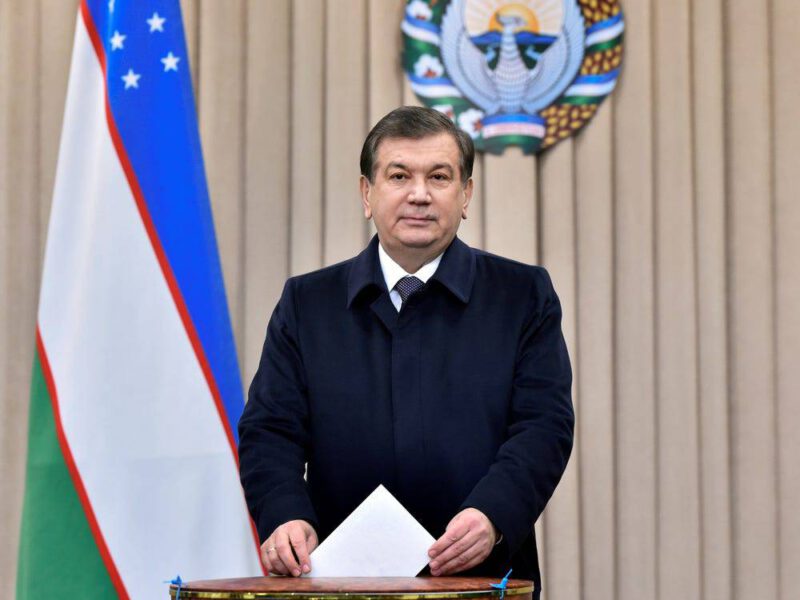
These days, geopolitical competition is intensifying in the world, and some forces are trying to provoke conflict and discord between different religions, reduce the power of the country and gain control of the region socially, politically and economically.
Islam always calls on all religions and faiths to cooperate in establishing justice, ensuring security and preventing the bloodshed of innocent people.
In conclusion, this new law in Uzbekistan “On Freedom of Conscience and Religious Organizations” is important for other countries, as it guarantees international human rights standards, universally recognized rights and freedoms in the field of religion, the specifics of the current religious situation in Uzbekistan and the historical conditions of interreligious relations.

